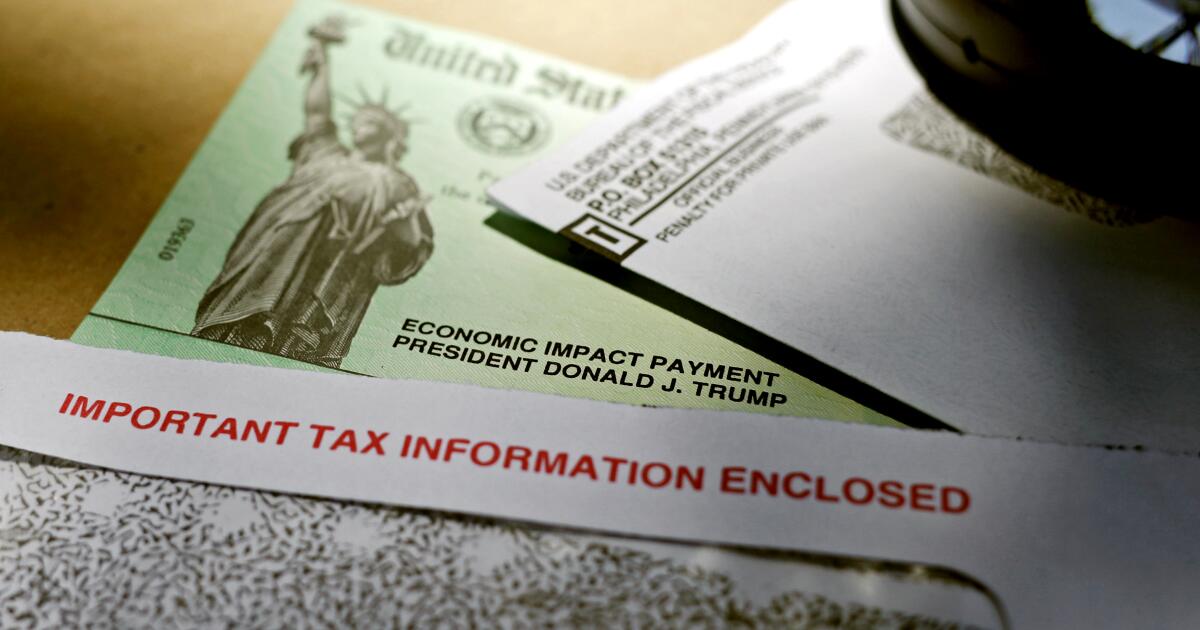Politics
Video: Republican Candidates Exchange Insults in Fiery Second Debate

Seven Republican presidential candidates bulldozed their way through a debate on the Fox Business Network on Wednesday night, shouting at each other at times. “Gentlemen, you’ll have your turn.” But in the end, they probably left unscathed the one person who was not on that stage, Donald Trump, the front-runner. “Thank you very much.” He was in Michigan giving a speech to workers. The candidates did raise issues from Ukraine to education, but whatever differences they had on the issues were more about style than substance. Nikki Haley really rose to the occasion. She was everywhere, attacking multiple candidates. “Honestly, every time I hear you, I feel a little bit dumber for what you say.” She went after Vivek Ramaswamy. She went after Ron DeSantis. At one point, she went after her fellow South Carolinian, Tim Scott. “Do your homework, Tim. You are scrapping.” Vivek Ramaswamy, who was really the star of the first debate in Milwaukee, couldn’t come up for air. “Excuse me. Thank you for speaking while I’m interrupting – interrupting while I’m speaking.” He was attacked incessantly. “We can’t trust you.” In one of the more memorable moments, Tim Scott took on Ron DeSantis for a curriculum in Florida on slavery. “Florida’s new Black history curriculum says, quote: Slaves develop skills which, in some instances, could be applied for their personal benefit.” “That’s a hoax that was perpetrated by Kamala Harris. We are not going to be doing that. Second of all, that was written by descendants of slaves.” “There is not a redeeming quality in slavery.” In general, Scott was much more present on Wednesday night than he was last month. “My wife…” Mike Pence tried to be a little more personable — “I’ve been sleeping with a teacher for 38 years” — talking at one point about sleeping with his wife and trying to land dad jokes that often were more awkward than funny. “Donald, I know you’re watching.” Chris Christie tried to tarnish the front-runner, Trump. He even at one point called him Donald Duck for missing the first two debates. “You keep doing that. No one up here is going to call you Donald Trump anymore. We’re going to call you Donald Duck.” And he got a little help from Ron DeSantis. “Donald Trump is missing in action. He should be on this stage tonight.” In the end. the seven candidates who entered the night far behind Donald Trump probably ended the night still far behind Donald Trump.

Politics
Column: Newsom is acting more like a governor should. Will that boost his White House prospects?
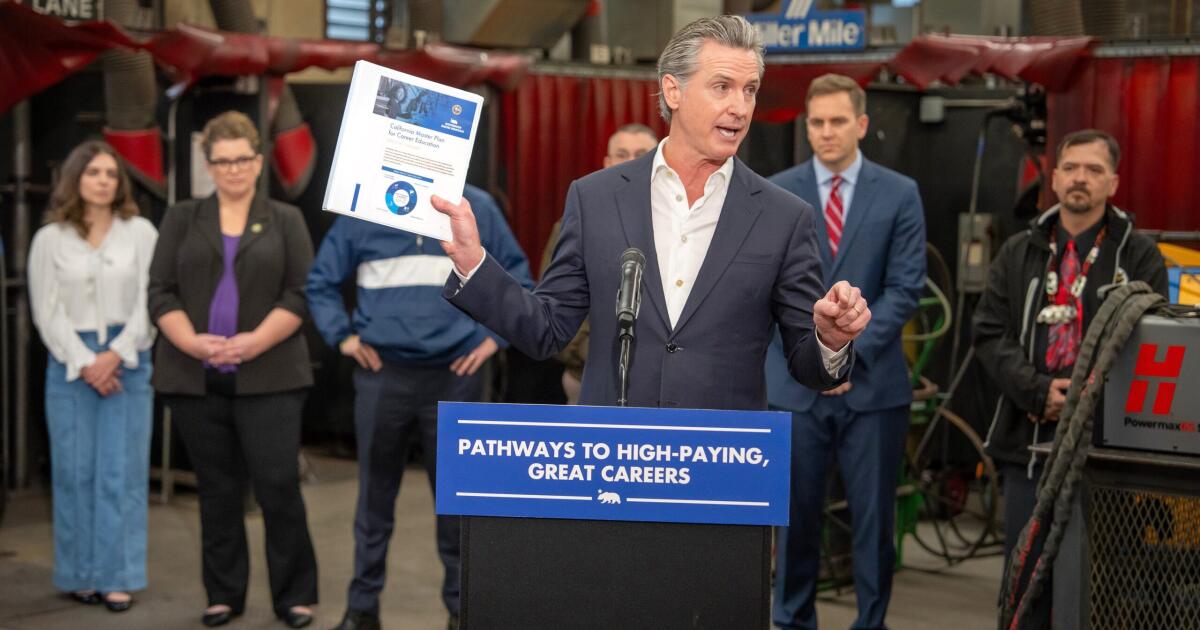
For a good deal of this election cycle, Gavin Newsom acted very much like a person wanting to be president.
He traveled the country and ran TV ads. He raised billboards and debated Florida’s Republican governor on national TV, just a few weeks before Ron DeSantis’ campaign crumpled in a humiliating heap.
The not-really campaign was never an actual, serious run for the White House. First Joe Biden and then (o, bitter pill!) his sometime friend, sometime rival Kamala Harris stood in Newsom’s way. It was more like California’s restive governor was letting his ego loose for a bit of an off-leash romp.
Things changed after Nov. 5, following Donald Trump’s triumph and California’s notable shift toward the center-right on election day. Suddenly, Newsom started appearing in places such as Bakersfield, Redding and Colusa, among the ruddiest parts of red California.
It’s something the governor should have done a long time ago, rather than strutting and preening on the national stage. There are millions of Californians — politically outnumbered, geographically far-flung — who have long felt derided or ignored by Sacramento.
But give credit where due. Newsom is showing up.
And if he’s interested in really, truly running for president in 2028 — when the Democratic contest looks to be a wide-open affair — it’s not a bad place to start.
The program Newsom has been pitching of late, the “Jobs First Economic Blueprint,” has been in the works for some time.
In promotional materials, the governor’s office describes the program as a “bottom-up strategy for creating good-paying jobs and regional economic development.” The plan follows lengthy consultation with locals in 13 parts of the state and aims to streamline programs and spur economic growth through a series of tailor-made initiatives.
The unveiling in the red reaches of California was no accident.
With Trump’s victory, Democrats have begun to reckon ever more seriously with their diminished standing among union members and working-class voters and the party’s catastrophic collapse — decades in the making — across rural America. There’s a new urgency “to solve problems and meet people where they are,” as David McCuan, a Sonoma State political science professor and longtime student of state politics, put it.
In California, that means venturing beyond the politically comfortable climes of Los Angeles and the San Francisco Bay Area into the hostile interior, and extending what Newsom described during a recent appearance in Redding as “an open hand, not a closed fist.” (The event at Shasta College, unveiling a plan to create better job opportunities for those without college degrees, even drew the rare presence of a GOP lawmaker, local Assemblywoman Heather Hadwick.)
It’s exactly what the governor should be doing. Seeing and being seen in red California sends a message to fellow Democrats as they puzzle out a way forward. More importantly, it tells those living outside the state’s big cities and sprawling suburbs they matter and their cares aren’t being overlooked.
Those close to the governor say Newsom is in a much better place now than the pouty, sulky space he occupied in the months after President Biden stepped aside and anointed Harris as his successor.
It’s not just the sidelining — for the time being anyway — of the vice president, who clearly bested Newsom in their unspoken, years-long competition. There is also a renewed sense of purpose with Trump returning to the White House and California poised to emerge, once more, at the vanguard of the political opposition, with Newsom in the lead.
No one, perhaps not even the governor himself, knows whether he will attempt a genuine, full-fledged try for the White House in 2028. But there are things he can do in the meantime to better position himself if he decides to do so.
Chief among them is ending his term a little over two years from now with a sheen of success. And that means spending more time in places like Ione and Newcastle than Iowa and New Hampshire. (You can find those tiny towns in Amador and Placer counties, respectively.)
There may be no small element of fantasy in the talk of Newsom as a serious presidential contender.
Having just lost the White House with one San Francisco-incubated nominee atop their ticket, it seems quite unlikely that Democrats will turn to Newsom, another of that ilk, to be the party’s savior four years hence.
But who knows? With a twice-impeached convicted felon preparing to take the presidential oath for a second time, it’s impossible to rule anything out.
Newsom’s red-state rambles may end up having no effect whatsoever on his political future.
But they can’t hurt.
Politics
Fetterman: Those hoping Trump fails are 'rooting against the nation'

Sen. John Fetterman, D-Pa., says he hopes President-elect Trump is successful, and spoke out against those who feel otherwise.
Fetterman appeared Sunday on ABC’S “This Week.” His more than 10-minute sit-down segment was pre-recorded with co-anchor Jonathan Karl.
“I’m not rooting against him,” the Democratic senator said. “If you’re rooting against the president, you are rooting against the nation. And and I’m not ever going to be where I want a president to fail. So, country first. I know that’s become maybe like a cliche, but it happens to be true.”
The senator told Karl he never believed Trump’s movement was about fascism, while noting that it was Vice President Kamala Harris’ “prerogative” to call Trump a fascist during her campaign.
FETTERMAN MEETS WITH TRUMP NOMINEES, PLEDGES ‘OPEN-MIND AND AN INFORMED OPINION’ FOR CONFIRMATION VOTES
Sen. John Fetterman talks with West Point cadets in the Senate subway on Nov. 19, 2024. (Tom Williams/CQ-Roll Call, Inc via Getty Images)
“Fascism, that’s not a word that regular people use, you know?” Fetterman said. “I think people are going to decide who is the candidate that’s going to protect and project, you know, my version of the American way of life, and that’s what happened.”
Fetterman has been meeting with Trump’s Cabinet nominees, noting that his decision about whether to vote to confirm the candidates will stem from an open mind and informed perspective.
FETTERMAN SAYS DEMS SHOULDN’T ‘FREAK OUT’ OVER EVERYTHING TRUMP DOES: ‘IT’S GOING TO BE 4 YEARS’
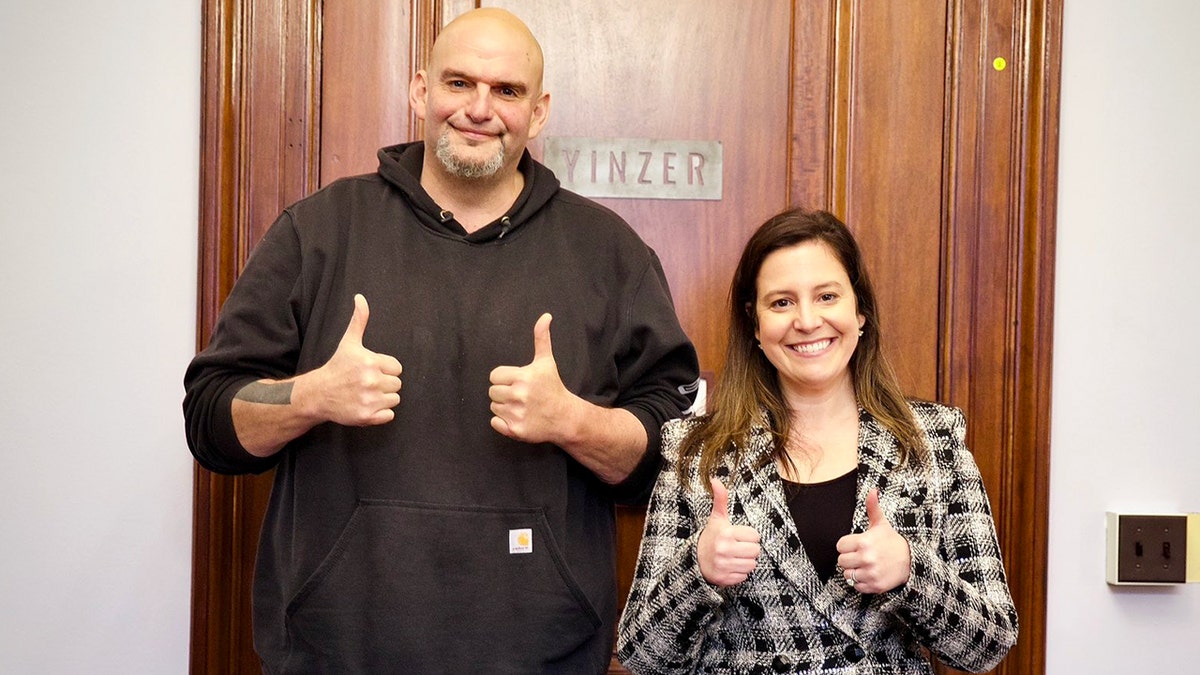
Sen. John Fetterman and Rep. Elise Stefanik, who has been nominated to be the U.S. ambassador to the United Nations in the Trump administration. (@EliseStefanik on X)
“I believe that it’s appropriate and the responsibility of a U.S. senator to have a conversation with President-elect Trump’s nominees. That’s why I met with Elise Stefanik and Pete Hegseth, just wrapped with Tulsi Gabbard, and look forward to my meetings with others soon,” Fetterman declared in a post on X.
“My votes will come from an open mind and an informed opinion after having a conversation with them. That’s not controversial, it’s my job,” he continued.
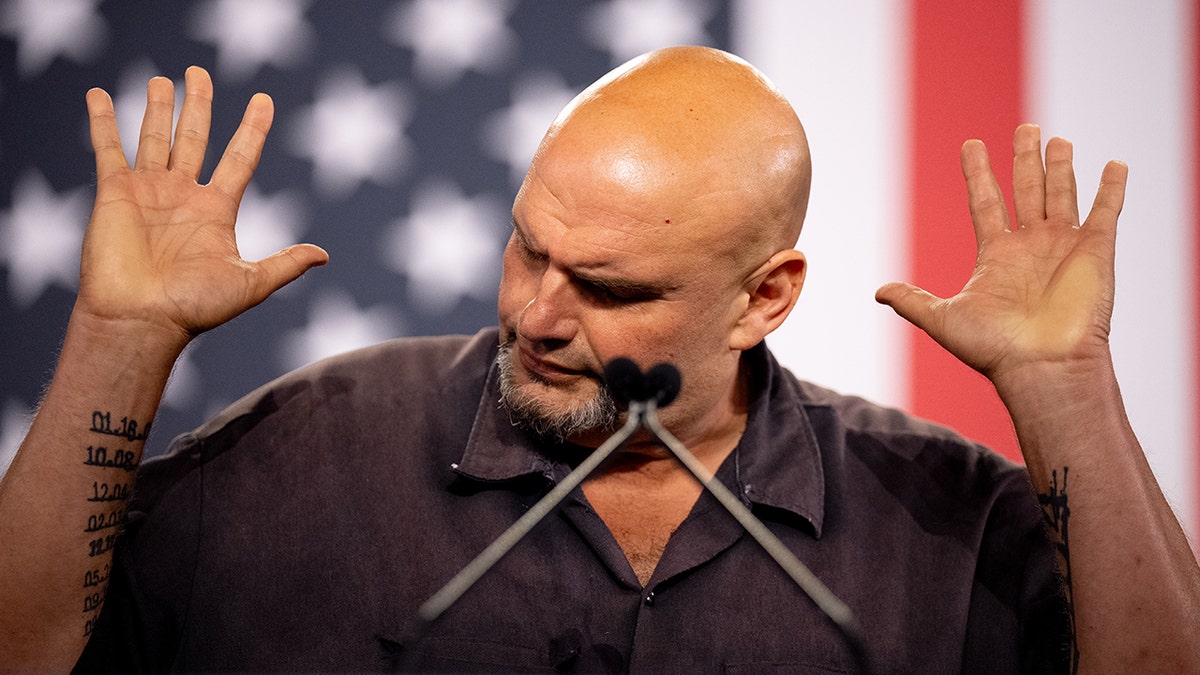
Sen. John Fetterman gestures while speaking at a rally for Democratic vice presidential nominee Minnesota Gov. Tim Walz on Oct. 2, 2024, in York, Pennsylvania. (Andrew Harnik/Getty Images)
More than a month ago, Fetterman said Democrats cannot afford to “freak out” over everything Trump says or does. He echoed that sentiment on Sunday, again mentioning that Trump has not even taken office yet.
Fox News’ Alex Nitzberg contributed to this report.
Politics
Potential risk of a constitutional convention sets stage for a fight between Newsom and a fellow Democrat
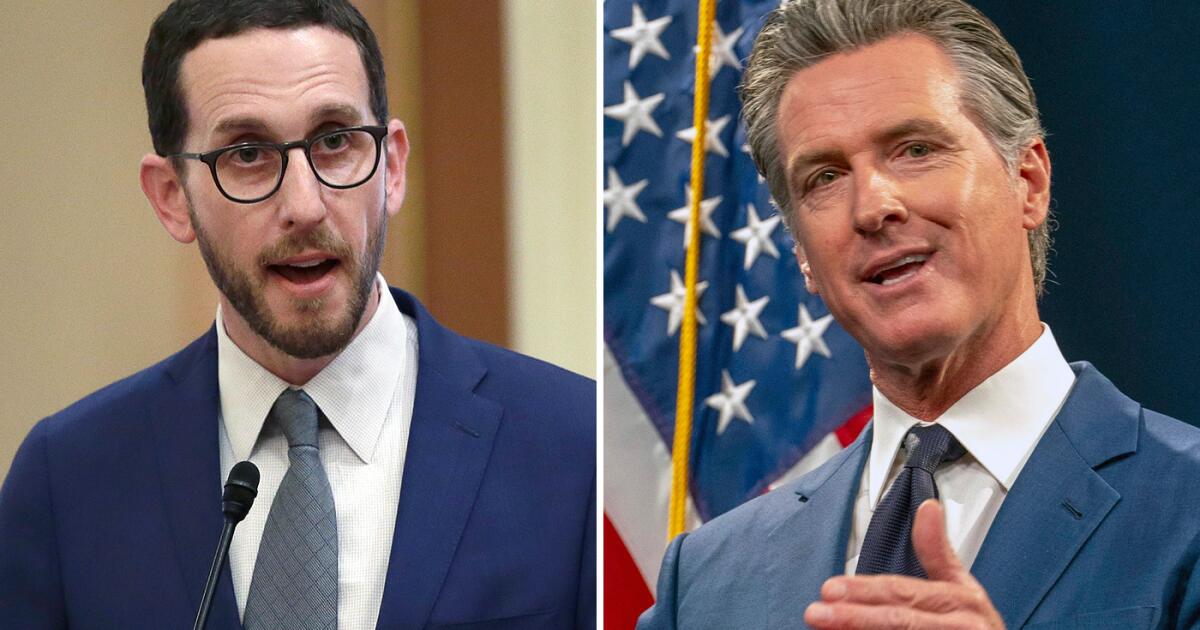
Last summer, Gov. Gavin Newsom made a splashy announcement on a nationally televised morning show.
As millions of Americans tuned in over their breakfast and coffee, California’s Democratic governor said he was fed up with Congress’ inability to pass gun safety laws and was taking matters into his own hands, calling for a new constitutional amendment to restrict firearms.
The proposal was more of a swashbuckling play for attention than a plan with any rational chance of success. The last — and only — time the states gathered for a constitutional convention was in 1787, when George Washington had yet to be elected as the United States’ first president.
Still, California’s Democratic lawmakers overwhelmingly approved Newsom’s proposal, and formally called for a convention to amend the Constitution to ban the sale of assault weapons, require universal background checks on gun purchases and raise the minimum age to buy a firearm from 18 to 21.
But a handful of Democrats did not go along with the plan. A progressive senator from San Francisco was the most vocal critic, arguing that a constitutional convention could wind up empowering a conservative agenda. And now, with the country in flux and a former president known for defying the laws of political gravity and pulverizing long-standing norms soon to be sworn back into office, he’s launched a new push to blunt Newsom’s flashy maneuver and rescind California’s call to amend the Constitution.
“There is no way that I want California to accidentally help these extremists trigger a constitutional convention where they, you know, rewrite the Constitution to restrict voting rights, to eliminate reproductive health access and so forth,” said Sen. Scott Wiener (D-San Francisco).
Come January, Republicans will control the White House and both chambers of Congress. The Supreme Court’s conservative supermajority is likely to remain in place for years to come.
To Wiener and some other Democrats, the once-improbable prospect of another constitutional convention suddenly seems a bit more credible under a second Trump term.
Calling another constitutional convention would require the approval of 34 of the 50 states. But many, like California, have existing calls on the books. Accounts differ on how many states have already called for a constitutional convention, but at least one tally puts the count above the requisite 34.
Wiener’s proposal, which was first reported by the New York Times, would nullify and supersede all constitutional convention applications previously put forth by the Legislature.
Wiener, like Newsom, is an ambitious and media-savvy politician. A frequent Fox News bête noire, he routinely carries legislation that makes headlines and pushes Democrats from the left. Wiener has made no secret of his desire for a congressional seat — specifically the one long occupied by Democratic powerbroker and former House Speaker Nancy Pelosi, whenever she retires.
Wiener is far from the only Democratic politician to fear the possibility of a conservative-led constitutional convention on the horizon. Several other states, including New Jersey and Illinois, have similarly rescinded their open calls for a constitutional convention in recent years.
“I think it’s a more present danger than many appreciate. There has been a movement by fringe conservatives for many, many years now to create a constitutional convention. And those folks are closer to power in Washington, D.C., than ever before,” said Jonathan Mehta Stein, executive director of the nonpartisan democracy advocacy group California Common Cause.
Mehta Stein described the possibility of such a convention as a “Pandora’s box for our Constitution” that would create “the opportunity for forces we don’t even know to overhaul our democratic institutions and our basic human rights.”
The governor’s office said his position had not changed regarding his support for a new constitutional amendment and declined to comment further.
Wiener’s decision to bring the resolution forward is a bit of a finger in the eye to the governor, who has vetoed some of Wiener’s most high-profile bills, including one to regulate artificial intelligence and another to decriminalize psychedelic mushrooms.
Newsom could try to will Wiener’s resolution toward a soundless death by leaning on lawmakers to bury it without a vote. Representatives for Senate President Pro Tem Mike McGuire (D-Healdsburg) and Assembly Speaker Robert Rivas (D-Hollister) both declined to say whether the Democratic legislative leaders support Wiener’s resolution.
Republican leaders were also noncommittal, though Wiener may wind up with their support. Senate GOP Leader Brian Jones (R-Santee) said he was reviewing Wiener’s resolution and assessing the benefits and potential consequences of a constitutional convention. Like Wiener, both Jones and Assembly Republican Leader James Gallagher (R-Yuba City) voted against Newsom’s proposal last year.
“This scheme was nothing but a publicity stunt from the start,” said Gallagher, who is leaning toward supporting Wiener’s repeal effort. “If repealing it will get Newsom to focus on California’s problems instead of chasing the national limelight, that sounds like a good thing.”
The fight ahead could also be a boon for Wiener, further raising his public profile ahead of a potential congressional campaign. That said, it will also test his political might, particularly if the governor chooses to wage a behind-the-scenes campaign against the proposal.
At issue, in part, is the question of how a constitutional convention would actually play out on the ground, and whether it could be convened around a specific topic, such as gun safety, as Newsom has insisted.
The instructions for how the states would proceed after calling a constitutional convention are laid out in Article V of the Constitution, a 143-word sentence that includes virtually no instructions for specific logistics.
Newsom’s office has maintained that his original resolution includes provisions rendering the call void if a constitutional convention is convened on a topic other than gun control.
But legal experts have pushed back on the idea that a constitutional convention could be convened around a single topic.
“The problem is, since there’s never been a constitutional convention under Article V, no one knows” whether it can be limited to one topic, said Erwin Chemerinsky, dean of UC Berkeley Law School and a leading constitutional law scholar. “People have said you can do it and people have said you can’t do it. The only honest answer anybody can give you is there’s no way to know, since it’s never happened.”
Chemerinsky, who characterized Newsom’s call for a constitutional convention on gun safety as misguided, said he agreed with Wiener and thought it was plausible that a constitutional convention could actually happen.
“There’s certainly a risk that it could be a very ideologically driven group of people who would propose quite extreme changes to the Constitution,” Chemerinsky said.
-

 Politics1 week ago
Politics1 week agoCanadian premier threatens to cut off energy imports to US if Trump imposes tariff on country
-
/cdn.vox-cdn.com/uploads/chorus_asset/file/25789444/1258459915.jpg)
/cdn.vox-cdn.com/uploads/chorus_asset/file/25789444/1258459915.jpg) Technology1 week ago
Technology1 week agoOpenAI cofounder Ilya Sutskever says the way AI is built is about to change
-

 Politics1 week ago
Politics1 week agoU.S. Supreme Court will decide if oil industry may sue to block California's zero-emissions goal
-
/cdn.vox-cdn.com/uploads/chorus_asset/file/25546252/STK169_Mark_Zuckerburg_CVIRGINIA_D.jpg)
/cdn.vox-cdn.com/uploads/chorus_asset/file/25546252/STK169_Mark_Zuckerburg_CVIRGINIA_D.jpg) Technology1 week ago
Technology1 week agoMeta asks the US government to block OpenAI’s switch to a for-profit
-

 Business1 week ago
Business1 week agoFreddie Freeman's World Series walk-off grand slam baseball sells at auction for $1.56 million
-
/cdn.vox-cdn.com/uploads/chorus_asset/file/23951353/STK043_VRG_Illo_N_Barclay_3_Meta.jpg)
/cdn.vox-cdn.com/uploads/chorus_asset/file/23951353/STK043_VRG_Illo_N_Barclay_3_Meta.jpg) Technology1 week ago
Technology1 week agoMeta’s Instagram boss: who posted something matters more in the AI age
-
News1 week ago
East’s wintry mix could make travel dicey. And yes, that was a tornado in Calif.
-
/cdn.vox-cdn.com/uploads/chorus_asset/file/24924653/236780_Google_AntiTrust_Trial_Custom_Art_CVirginia__0003_1.png)
/cdn.vox-cdn.com/uploads/chorus_asset/file/24924653/236780_Google_AntiTrust_Trial_Custom_Art_CVirginia__0003_1.png) Technology2 days ago
Technology2 days agoGoogle’s counteroffer to the government trying to break it up is unbundling Android apps






